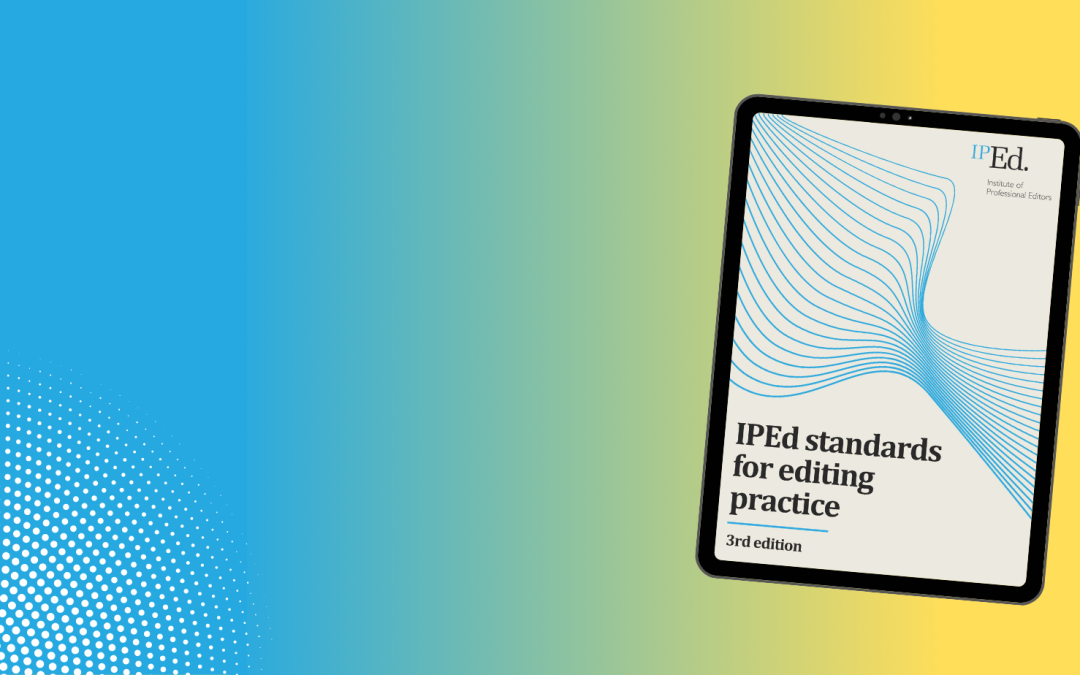The third edition of IPEd standards for editing practice was launched on Thursday 21 March. IPEd’s patron, Emeritus Professor Roly Sussex OAM, delivered the following speech at the launch.
If editors are gatekeepers of good textual practice, then the IPEd Standards is the gatekeeper of gatekeepers of good practice. And, when I come to think of it, the people who wrote the Standards are the gatekeepers of the gatekeepers of the gatekeepers – of good textual practice.
I have been watching the development of this third edition for over a year. The road has indeed been long and arduous. The field on which language and editing issues are played out – I deliberately don’t want to say “battlefield” – has become wider, more uneven, and with more pitfalls and minefields than heretofore. The status of authenticity and originality has been challenged by the upsurge of AI, which is getting more fraught with each release of updated software. Questions of Indigenous culture are no longer at the penumbra, but are now influential in areas where they were less visible not so long ago. Gender and sexuality are now much more sensitive, and merit our best judgement and most thoughtful consideration.
Importantly, in another new major innovation, the Standards has been prepared with New Zealand editors as co-partners. That’s significant. We are consanguines in editing across the ditch, but we also have a lot to learn from each other, and each other’s different circumstances.
It is to the immense credit to the authors of the third edition of the Standards that they have negotiated these issues with diplomacy and in a thoroughly consultative way. They have been sensitive to circumstances in New Zealand – IPEd’s Aotearoa New Zealand branch is now well established – which in many respects are not isomorphic with those in Australia. The authors have sought policy positions which are principled and workable, but also allow some flexibility to fit specific contingent circumstances. All of this has been difficult, but the editors of the Standards have stayed the course and given us a hard-fought, reasoned and reasonable outcome.
The third edition of the Standards will inevitably become one of the pivot points of practice and discussion about these matters as we move forward – I say this with some trepidation – towards the fourth edition. Language and its contemporary context are dynamic, and many things are not locked down. One of the most genial aspects of the Standards is that it does in fact not only permit discussion under negotiation, but provides guidelines along which such discussion and negotiation can proceed. The balance between being locked down and being up for discussion has changed enormously since the days of Fowler’s Modern English Usage, which was very much a top-down directive document which one violated only with a sense of premonition, fear and peril.
It’s fair to say that the third edition of the Standards has morphed in a sophisticated and clever way into something significantly more than its predecessors. We need to talk and consult freely and often about these matters, and the baseline has been set: editors are cast as champions of diversity, equity and inclusion. That’s not a light undertaking, but it’s contemporary, appropriate and motivating. And what a banner to march under!
The editors of the third edition have given us a wise, careful, responsible and suitable document to guide us in our work and working deliberations. They deserve our profound gratitude and appreciation. I for one will have the Standards bookmarked and on my desktop for regular reference. It is very much a repository of the wisdom of our profession and a vade mecum for those who dare to tread the exciting meadows of editing.
With confidence and pride I declare the third edition of IPEd standards for editing practice formally launched.
Download the third edition of IPEd standards for editing practice from the IPEd website.

